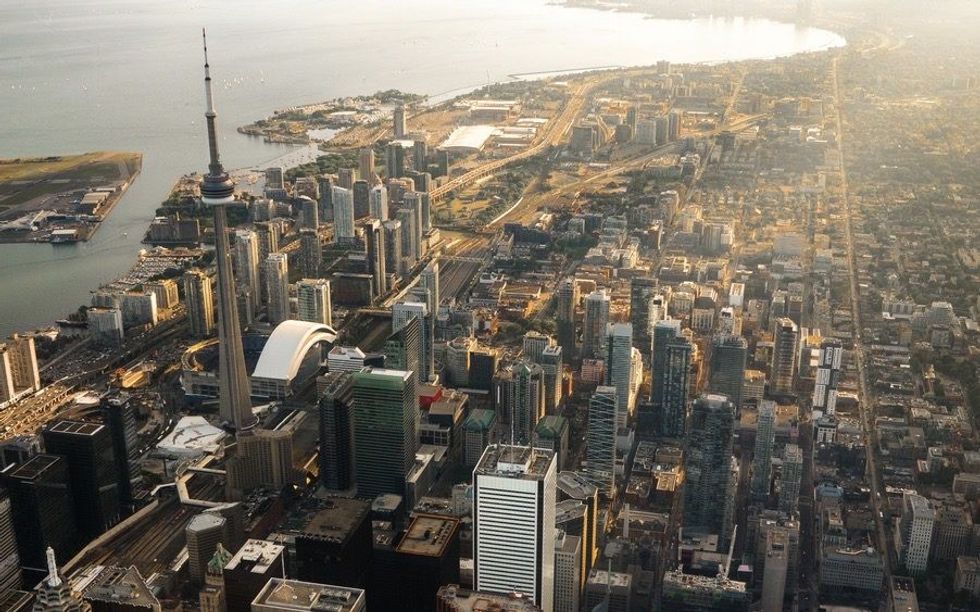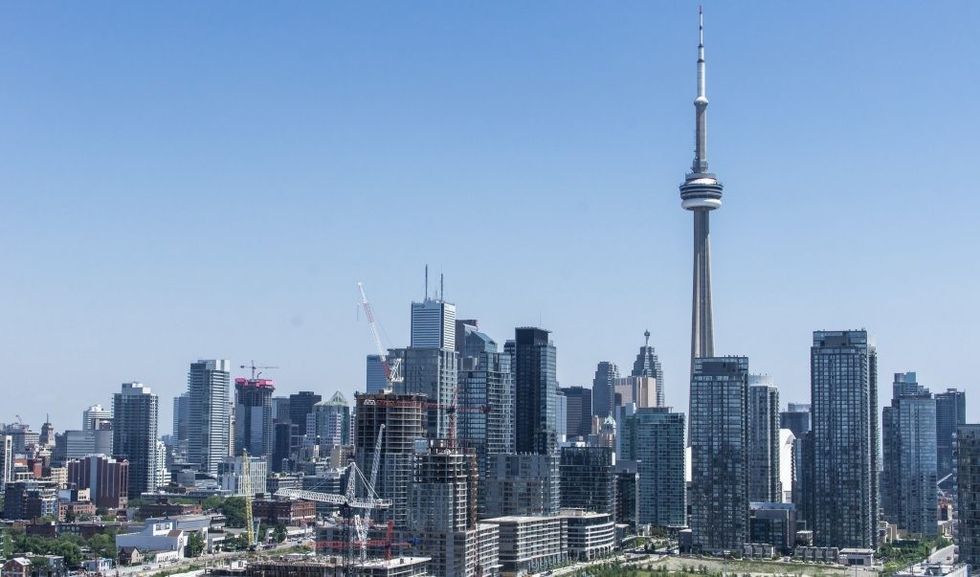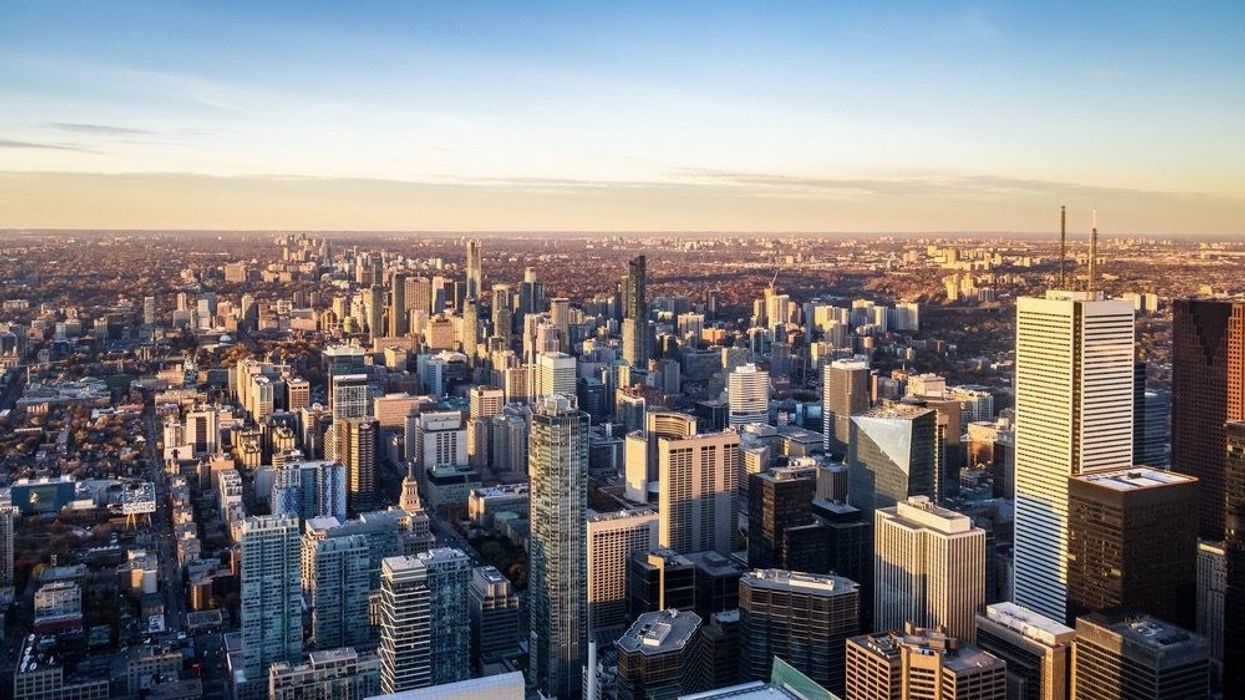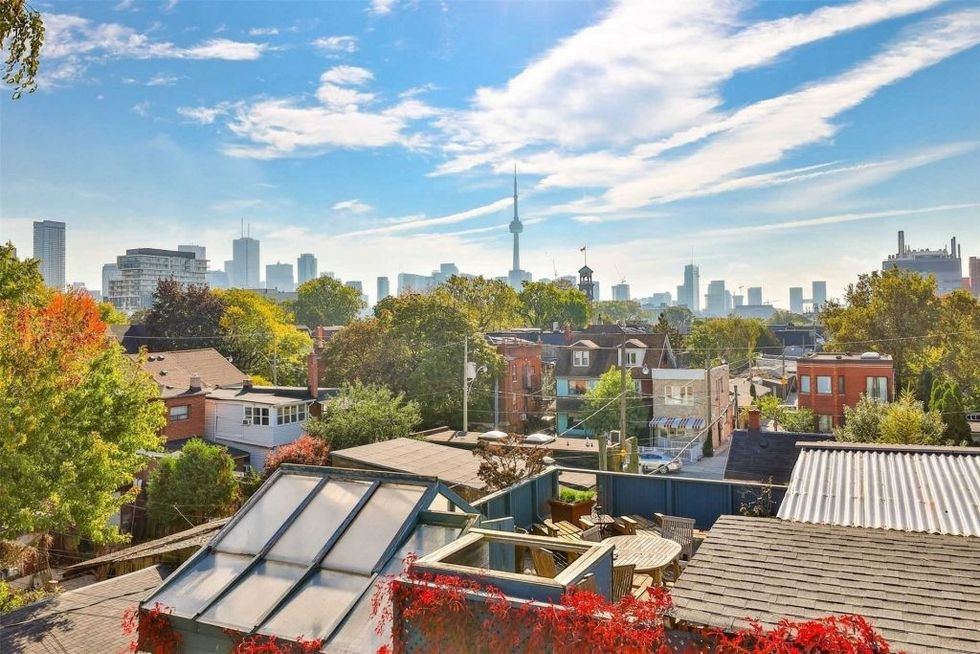“There’s something really rotten in the state of Denmark here,” says Toronto City Councillor Mike Colle. “That’s what I am trying to expose.”
In response to dramatically soaring home prices that have left no corner of Ontario untouched, Colle -- who represents Ward 8, Eglinton–Lawrence -- says it’s time to explore the prospect of a speculation tax in the province.
The goal is designed to target investors who are sweeping up homes and selling them for huge markups, resulting in defeating price hikes across the market, he says.
“Toronto City Council requests that the Government of Ontario introduce a Home Speculation and Home Flipping Tax to help stop the extreme increases in home prices driven by land speculators and home flippers in the City of Toronto,” reads a recommendation in a motion to be introduced by Councillor Colle later this month.
The move comes in the midst of rapidly rising home prices that have rendered home ownership unattainable for countless young would-be buyers -- even those with high-paying jobs. Last week, the Toronto Regional Real Estate Board (TRREB) reported that the average selling point across all home types in the region had hit a tough-to-swallow $1,163,323.

“We’ve never seen such escalation in price province-wide. So, that tells me there’s something not normal about this; when you see prices in Belleville going through the roof you know something is happening,” says Colle. “It’s happening all throughout the province now. In Kingston, for example, prices are soaring. It’s a historical shift.”
Investor-driven price hikes are causing a ripple effect throughout Ontario, says Colle. Investors are contributing to unattainable prices that force Toronto residents out of the city to other parts of the province -- and beyond, to other parts of the country -- resulting in price increases in those historically affordable regions. Now, few spots in Ontario are attainable for young homebuyers who don’t have affluent parents to foot the down payment tab.
“It’s denying young Canadians the right to own a home. Who can afford a half a million -- or million -- dollar down payment?,” asks Colle. “You’re basically saying, ‘home ownership isn’t for you anymore. You can’t go to Hamilton anymore; you can’t go anywhere.’”
And -- though not entirely to blame -- dollar-driven investors have become a huge contributor to the dismal reality as of late, says Colle.
“We have reached a historical high in the percentage of investors/speculators that are now buying homes; now 25% of homes are purchased by the investor class, which is more than double or three times as much as it normally is,” says Colle.
READ: Canada’s Gen Z Shows (Surprising) Optimism When it Comes to Owning a Home
With that said, it’s important to note that multi-property buyers in this 25% aren’t all investors and speculators looking to turn around profits or hike rents on their investment units. This demographic also includes purchasers of cottages and other vacation homes, as well as people who may have purchased property for their children near post-secondary institutions or in cities for other family members, says Mark Cohen, founding partner of The Condo Store Realty Inc.
“Many purchasers are investing in property for their family members; not for financial gain,” Cohen recently told STOREYS. “They are not all investors looking to to flip or sell it, or to rent it and hold it; it’s more for family members who are here or are going to come here, or parents who are buying for their kids.”
While this segment of multi-property owners is part of the current situation, Colle says the concern isn't them. "It’s the people who are going into a new subdivision and purchasing 60 to 70 homes at a time that’s the problem; people who are going into pre-construction condo sales and buying entire floors or half of condo developments,” says Colle. “A cottage property is a normal part of the process; those are not the people causing the problem.”

John Pasalis, president at Realosophy, says that house flippers aren't the big culprit when it comes to the state of Toronto's housing market. "House flipping is not as common as people think, and it's not a key driver of the price appreciation in Toronto," says Pasalis. In that respect, a tax that targets home flippers won't have much of a material impact on the market, he says.
But he's "all in" for a tax that targets big corporate investors. "Colle is effectively saying homes should be for people who want to live in them, not financial assets for big corporations, which I completely agree with," says Pasalis.
What’s needed, says Colle, is a deep and throrough analysis by an impartial third party organization.
“They really have to have a good look at it and do an impartial, objective analysis. And I don’t want it done by any real estate board. I want independent people to look at this and see what’s happening,” says Colle. “All sorts of real estate lawyers have their excuses to maintain the status quo; but the status quo right now means that you can’t purchase a home, no matter where you go in Ontario. Even outside of Ontario -- prices are climbing in spots like Halifax because people from Ontario are buying them.”
When it comes to an attempt to cool the market by the way of a speculation tax, Colle isn’t as concerned -- at least, not at the moment -- about the exact percentage point of the proposed tax. More importantly, he says, it needs to be enforced.
“I am looking for some sort of umpire to step in and enforce the rules,” says Colle. “Right now it’s the wild west here in Toronto.”
He points to a lack of regulation and easy ability to skirt existing taxes, like the current 15% non-resident tax on property purchased in the Greater Golden Horseshoe Region for foreign purchasers who aren't citizens or permanent residents of Canada. “From what I am hearing about this foreign investment tax, it has 101 ways of getting around it,” says Colle. “You just call up one of these real estate lawyers and they will tell you put the condo in your son’s name who is a student from a foreign county. Right now they are paper rules; they aren’t being enforced. Nor is capital gains tax in many cases."
While he acknowledges that a new tax may not be the total answer, Colle says the concept is deserving of a strong evaluation. “We need something like this to slow things down and send a signal that we do have rules -- we do have protocols in place -- that homeownership isn’t supposed to be treated like investing in a bitcoin commodity,” he says.
Of course, speculation tax is not a new idea. Former Ontario Premier Bill Davis brought in speculation tax on non-principal residences back in 1974 in an attempt to cool the province’s housing market. Relatively short-lived, the speculation tax was introduced at a rate of 50%, before being reduced to 20% in response to relentless backlash. Not long after, the controversial initiative was scrapped all together.
While some call it a failure, Colle said that the 1974 speculation tax actually made an impact on cooling the market. “At least it did calm the hyper speculation at the time,” says Colle. “It slowed prices down and let people breathe for a while and sent a strong signal to slow things down.”
Many Ontario residents agree that the sky-high housing costs that have killed the Canadian dream of home ownership are a major problem. It’s the solution that nobody seems to agree upon these days. In fact, some say investors have become scapegoats in today's dramatic real estate climate.
Many industry experts, like Cohen, actually point to the role of investors in creating much-needed housing supply -- some of which may not materialize without their dollars. A hefty speculation tax could have the negative consequence of a dwindling amount of rental stock on the market.
However, a focus on supply also contributes to the problem. “Pushing supply just gives more ammunition for investment unless there’s rules,” says Colle. “Nothing exists to moderate this type of reckless speculation that’s taking place, and we need something to send a signal that there are rules.”
In his push to examine the possibility of a speculation tax, Colle acknowledges he has “upset the apple cart." Like in 1974, the idea isn't necessarily a popular one. But the situation is a lot worse and far-reaching now than it was back then.
“It will get worse before it gets better,” warns Colle. “If we can at least get some discussion or debate going about this, it’s the first step. But nobody wants to talk about it.”
At the end of the day, Colle says he simply doesn’t want people to see Toronto as a commodity.
“I have about 50-60 condo development applications in my ward -- they are coming in every day pretty much -- I want to make sure that these places will be available for people to purchase and live in, not snatched up by investors as speculation tools,” says Colle. “I want regular working people to be able to buy them. I want some rules to give them a chance.”






















